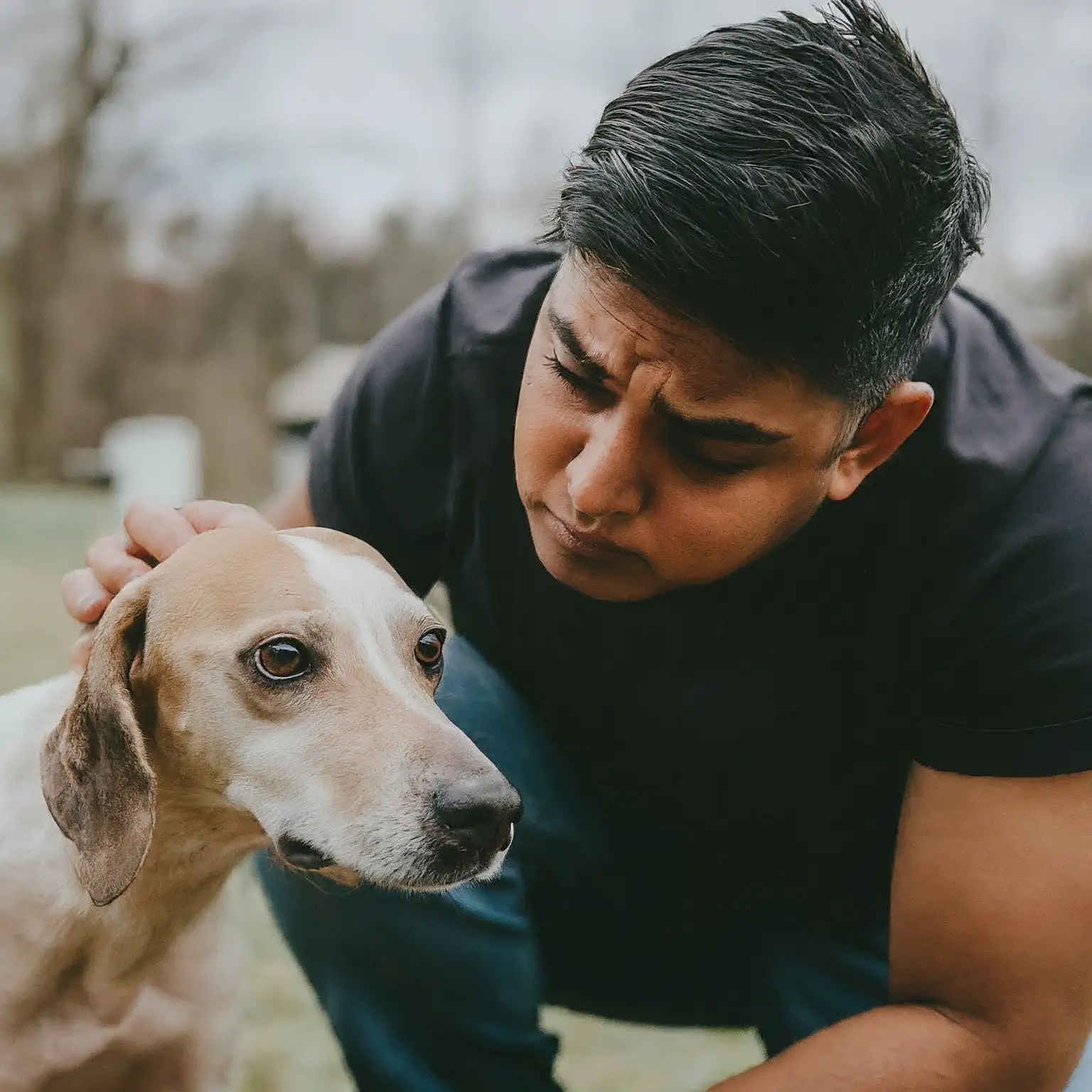1. Early Signs of Illness in Dogs
Spotting the early signs of illness in Dogs can be crucial for their health and happiness. Often, the initial symptoms can be subtle, such as a slight change in energy levels, appetite, or behavior. Your dog might not be their usual playful self, may show less interest in their food, or might seek solitude more than usual. It’s important to tune in to these nuances, as they can be the first indicators that something isn’t quite right.
Observing your dog’s daily routines and habits can help you detect these early signs. Changes in drinking habits, slight limping, or even a different posture can be telling. Remember, you know your dog better than anyone, so trust your instincts if you feel something is off. Keeping a mental or physical note of these changes can be incredibly helpful when discussing your concerns with a vet.
Taking action at the first sign of illness by consulting with a veterinarian can make a significant difference in your dog’s prognosis. Early detection often leads to more straightforward and less invasive treatments. Regular check-ups and staying informed about the common signs of illness can empower you as a pet owner to keep your furry companion healthy and vibrant for years to come.
2. Dog Sickness Symptoms Checklist
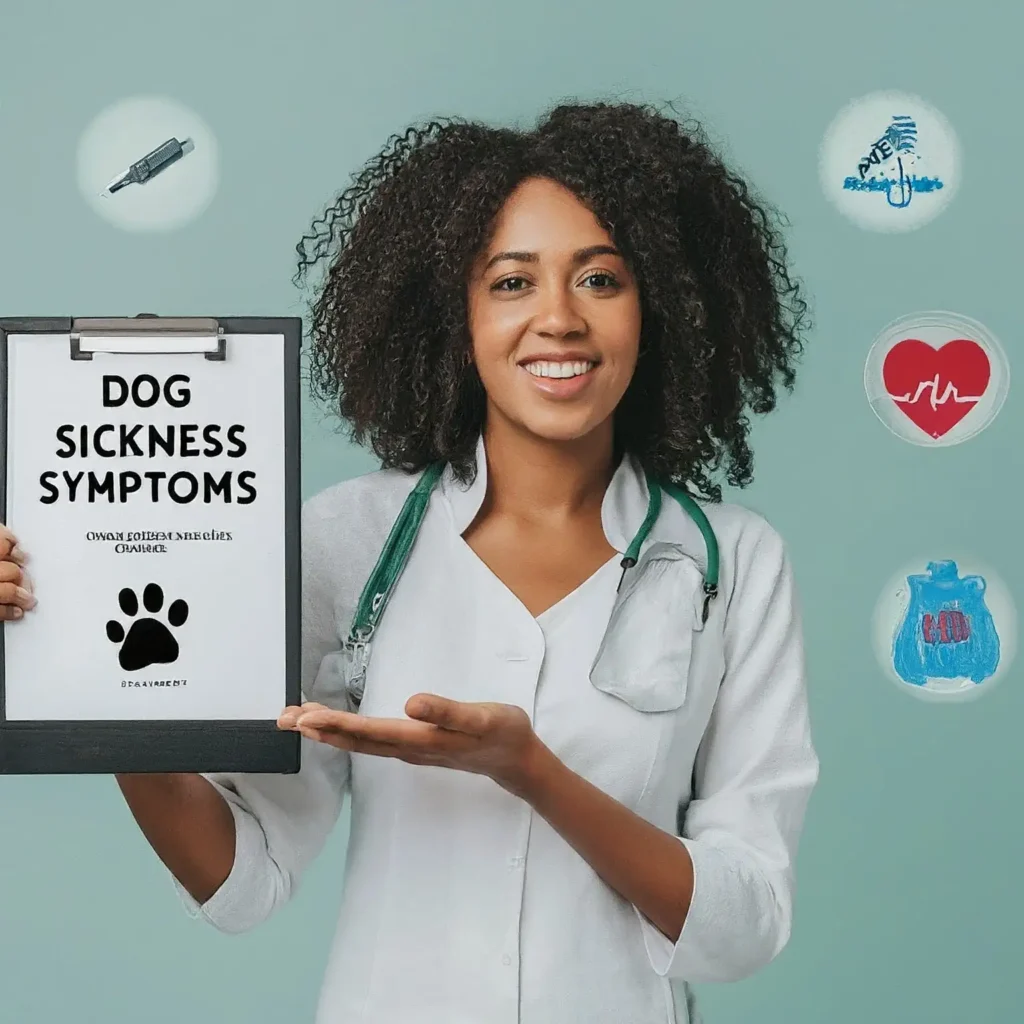
When it comes to keeping an eye on your dog’s health, having a mental checklist of common symptoms can be a game-changer. Symptoms like persistent coughing, unexpected weight loss or gain, difficulty breathing, or changes in bowel movements should raise a red flag. Other signs to watch out for include excessive thirst, unexplained fatigue, and any form of disorientation or unsteady gait.
It’s also wise to monitor your dog’s skin and coat condition, as external health can reflect internal well-being. Look out for excessive scratching, bald patches, or sudden changes in coat texture. Additionally, don’t overlook dental health; bad breath or a sudden reluctance to chew toys or eat hard food can indicate dental issues.
This checklist isn’t meant to cause alarm but to prepare and inform you. If your dog shows one or more of these symptoms, it doesn’t automatically mean there’s a severe problem. However, it’s always better to err on the side of caution and consult your vet. They can provide guidance, conduct necessary tests, and offer peace of mind, ensuring your dog stays as healthy and happy as possible.
3. When to Take My Dog to the Vet

Deciding when to take your dog to the vet can sometimes feel like a balancing act. You don’t want to overreact to minor issues, but you also don’t want to underestimate potentially serious health problems. As a rule of thumb, any significant or sudden change in your dog’s behavior, appetite, energy levels, or physical condition warrants a professional evaluation. This includes symptoms like prolonged vomiting or diarrhea, evidence of pain, difficulty breathing, or any signs of distress.
Preventive care is also crucial. Regular wellness checks can catch issues before they become serious and ensure your dog is up to date on vaccinations and parasite control. These visits are also a great opportunity to discuss any minor concerns that may not warrant an emergency visit but are still important for your dog’s overall health.
Trust your instincts. You know your dog better than anyone, and if something feels off, it’s better to be safe and seek veterinary advice. Remember, timely intervention can prevent complications, reduce suffering, and even save your dog’s life. Your vet is your partner in your dog’s health care, so when in doubt, make that call.
4. Common Dog Diseases and Prevention

Awareness and prevention are key components in keeping our canine companions healthy and thriving. Common dog diseases, such as parvovirus, distemper, rabies, and various forms of worms, can have serious implications for your dog’s health. However, many of these illnesses can be prevented through regular vaccinations and routine preventive care.
Maintaining a healthy lifestyle is also critical. A balanced diet, regular exercise, and good hygiene can significantly reduce your dog’s risk of developing diseases. Regular check-ups with your vet, including dental care and weight management, play a crucial role in early disease detection and prevention.
Prevention extends beyond medical care. Ensuring your dog’s environment is safe and clean, avoiding exposure to known hazards, and educating yourself about the signs and symptoms of common diseases can empower you as a pet owner. Knowledge is power, and in the case of your dog’s health, it can lead to a longer, happier life together.
5. Dog Suddenly Lethargic and Vomiting
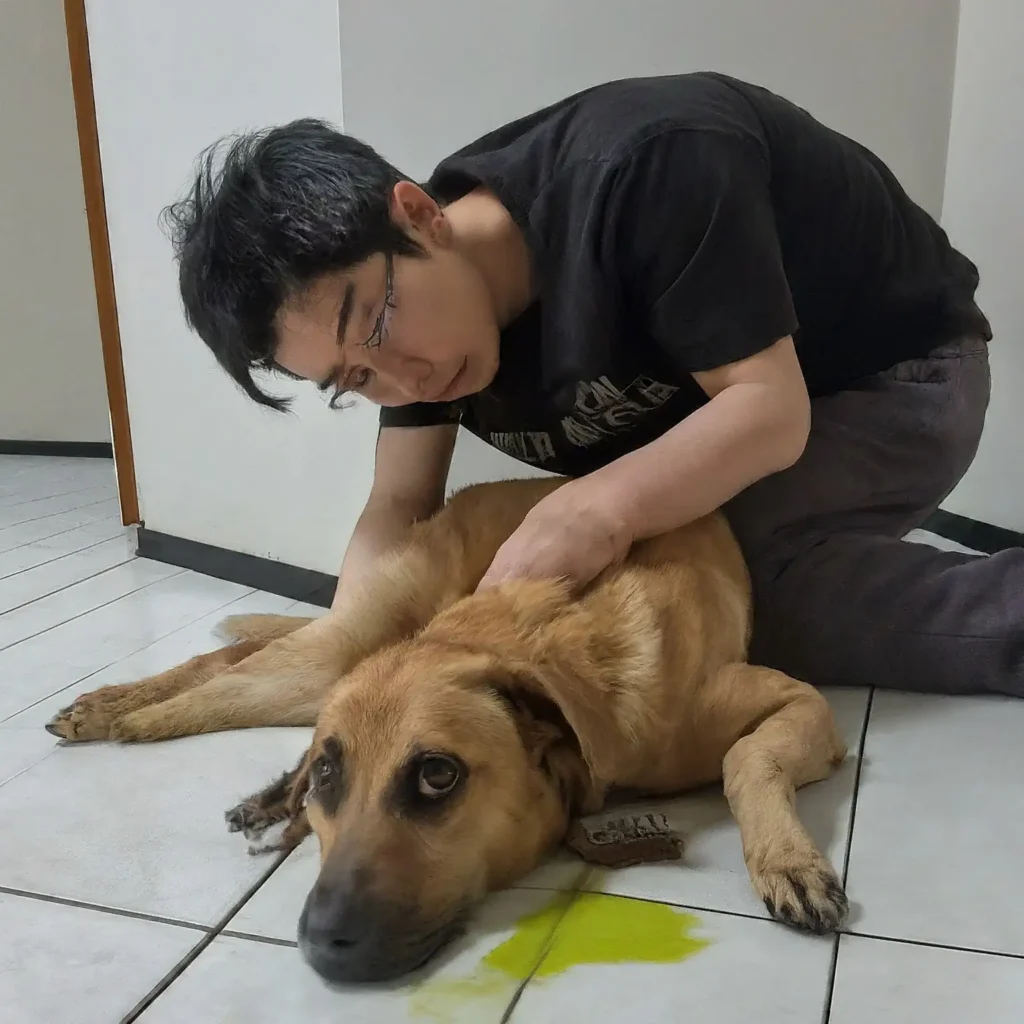
If your once energetic pup is now lethargic and vomiting, it’s understandable to feel concerned. These symptoms can be caused by a range of issues, from simple dietary indiscretions to more serious health conditions like infections, organ problems, or even ingestion of toxic substances. Sudden changes in energy levels accompanied by
vomiting warrant close observation and possibly a vet visit to rule out serious concerns.
When faced with these symptoms, monitor your dog closely. Keep track of how often they vomit, any other accompanying symptoms (like diarrhea or refusal to eat), and any possible triggers (like new foods or recent outings). This information can be incredibly helpful for your vet in diagnosing and treating the issue.
In such situations, it’s essential to provide your dog with a quiet, comfortable space to rest. Ensure they have easy access to fresh water to prevent dehydration, but avoid giving food for a few hours. If the vomiting persists or your dog shows other concerning symptoms, don’t hesitate to seek veterinary care. Prompt action can make all the difference in your dog’s recovery.
6. Is My Dog Sick or Just Tired?

It can sometimes be tricky to tell if your dog is just tired from an exciting day out or if they’re feeling unwell. Dogs, much like people, can have days when they’re simply more tired, especially after a lot of physical activity or mental stimulation. However, if this tiredness seems out of character, lasts longer than a day, or is accompanied by other symptoms like disinterest in food or water, it might be a sign of illness.
Consider the context of your dog’s fatigue. A long hike or a day at the dog park can explain a day or two of increased rest. But if there’s no obvious reason for their lethargy, or if they seem more disengaged than usual, it’s worth paying closer attention. Other subtle signs, such as slight changes in eating habits, minor coughing, or even a different posture, can provide further clues to your dog’s health state.
When in doubt, a vet visit can offer peace of mind and ensure your dog’s needs are addressed. It’s always better to err on the side of caution when it comes to your pet’s health. After all, they rely on us to be their voice and advocate for their well-being.
7. Home Remedies for Dog Upset Stomach

An upset stomach is a common issue in dogs and can often be managed at home with simple remedies. If your dog is experiencing mild stomach upset without any severe symptoms like blood in their vomit or stool, lethargy, or continuous vomiting, you might try some gentle home care. Offering a bland diet, such as boiled chicken and rice, in small portions can help settle their stomach. It’s important to reintroduce food slowly and in small amounts after a period of fasting for about 12-24 hours to let their digestive system rest.
Hydration is key, but ensure your dog drinks in moderation to avoid triggering more nausea. Ice cubes or small amounts of water at a time can help keep them hydrated without overwhelming their stomach. Probiotics designed for dogs can also support gut health and aid in digestion, but it’s best to consult your vet before starting any supplements.
Remember, these remedies are for mild, non-emergency situations. If your dog’s symptoms persist for more than a day or two, or if they exhibit more severe symptoms, it’s crucial to seek veterinary care. Home remedies can be helpful, but they’re not a substitute for professional medical advice when it’s needed.
8. Dog Vomiting White Foam
Seeing your dog vomit white foam can be alarming, but it’s a relatively common issue. This type of vomiting can be caused by various factors, including indigestion, kennel cough, or even something more serious like pancreatitis or kidney disease. Sometimes, it’s simply a result of your dog trying to vomit on an empty stomach, where the foam is a mixture of saliva and gastric juices.
If your dog vomits white foam just once or twice and seems otherwise healthy, it may not be a cause for immediate concern. Keep an eye on them for any other symptoms, such as lethargy, diarrhea, or loss of appetite, which could indicate a more serious underlying condition. Ensure they have access to fresh water and monitor their behavior closely.
However, if the vomiting persists, or if your dog shows other concerning symptoms, it’s essential to consult with your vet. They can provide a thorough examination, diagnose the underlying cause, and prescribe the appropriate treatment to get your furry friend back to their happy, healthy self.
9. How to Tell if Your Dog is Seriously Ill
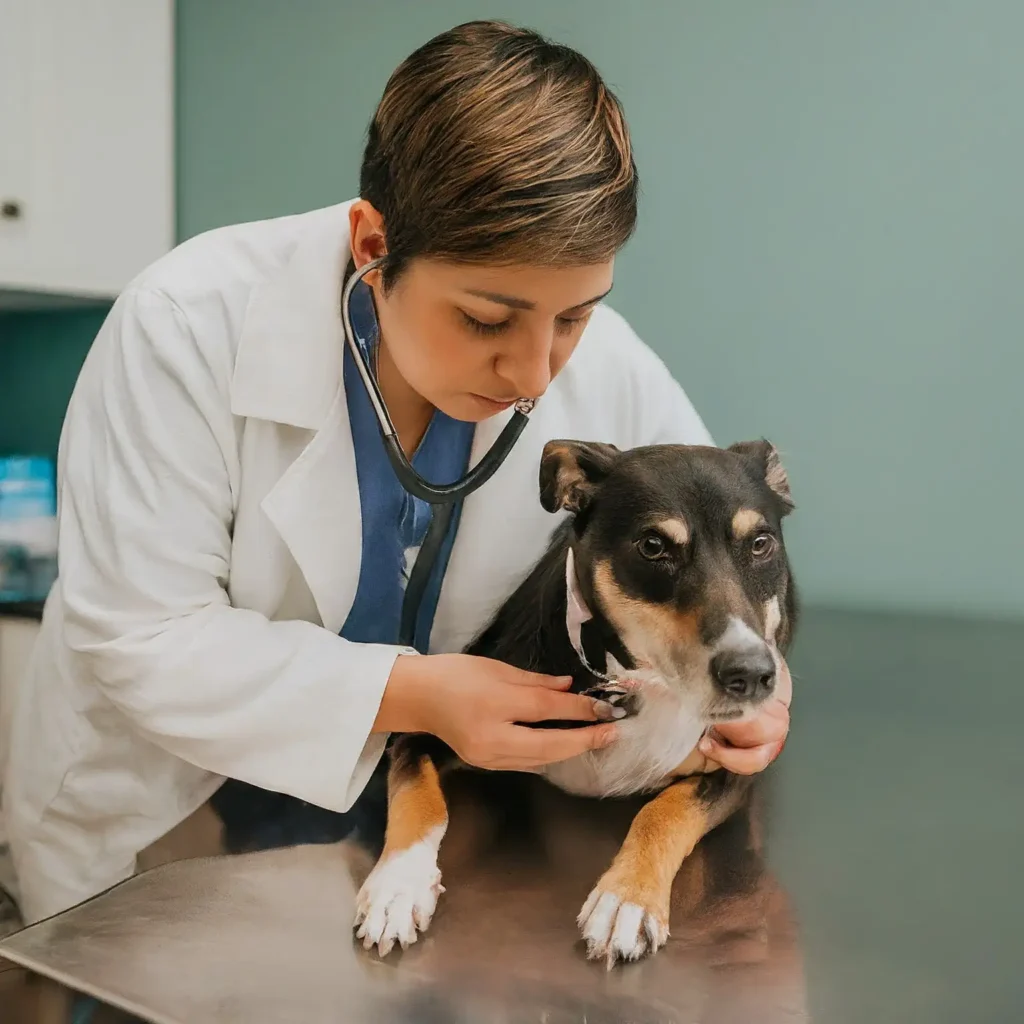
Determining the severity of your dog’s illness can be challenging, but there are certain signs that should prompt immediate veterinary attention. These include extreme lethargy, unresponsiveness, difficulty breathing, seizures, significant changes in urination or defecation habits, uncontrolled vomiting or diarrhea, suspected ingestion of toxic substances, and any signs of severe pain.
It’s crucial to act quickly if you notice these symptoms, as they can indicate life-threatening conditions. Even if you’re unsure about the severity of the situation, it’s better to err on the side of caution and seek professional advice. Veterinary professionals can assess your dog
‘s condition and provide the necessary care to ensure their safety and well-being.
Always keep your vet’s contact information handy, along with the details of an emergency veterinary clinic. In situations where your dog’s life may be at risk, every moment counts. Your prompt action can make a significant difference in the outcome for your beloved pet.
10. My Dog is Acting Weird and Shaking

When your dog starts acting out of character and shows signs of shaking or trembling, it’s natural to feel concerned. This behavior can be attributed to a variety of causes, ranging from fear and anxiety to more serious health issues like pain, nausea, or neurological disorders. Sometimes, the shaking can be due to something as simple as being cold or overly excited.
To help your dog, try to identify any potential stressors or environmental factors that could be causing their anxiety or discomfort. Providing a calm, comfortable space can often help soothe a nervous dog. However, if the shaking is accompanied by other symptoms like lethargy, vomiting, or disorientation, it’s crucial to seek veterinary care to rule out underlying health problems.
Observing and noting any additional symptoms can be incredibly helpful for your vet in diagnosing the cause of your dog’s distress. Remember, you are your dog’s best advocate, and understanding their normal behavior and habits can be key to recognizing when something is amiss and taking timely action to help them.
11. Dog Diarrhea: Causes and Treatment

Diarrhea in dogs can be distressing for both pet and owner, and it can stem from a variety of causes, including dietary indiscretions, infections, parasites, or more chronic conditions like inflammatory bowel disease. An occasional loose stool may not be a cause for alarm, but persistent or severe diarrhea, especially when accompanied by other symptoms like vomiting, lethargy, or weight loss, requires veterinary attention.
For mild cases without additional concerning symptoms, you might manage diarrhea at home by offering a bland diet, like boiled chicken and rice, and ensuring your dog stays hydrated. However, it’s crucial to avoid giving any over-the-counter medications without consulting your vet, as some human medications can be harmful to dogs.
If diarrhea persists for more than a day or two, or if you notice blood, it’s important to visit your vet. They can perform tests to determine the underlying cause and prescribe the appropriate treatment, which might include dietary changes, probiotics, medications, or more specific interventions depending on the diagnosis.
12. Dog Health Problems: Not Eating
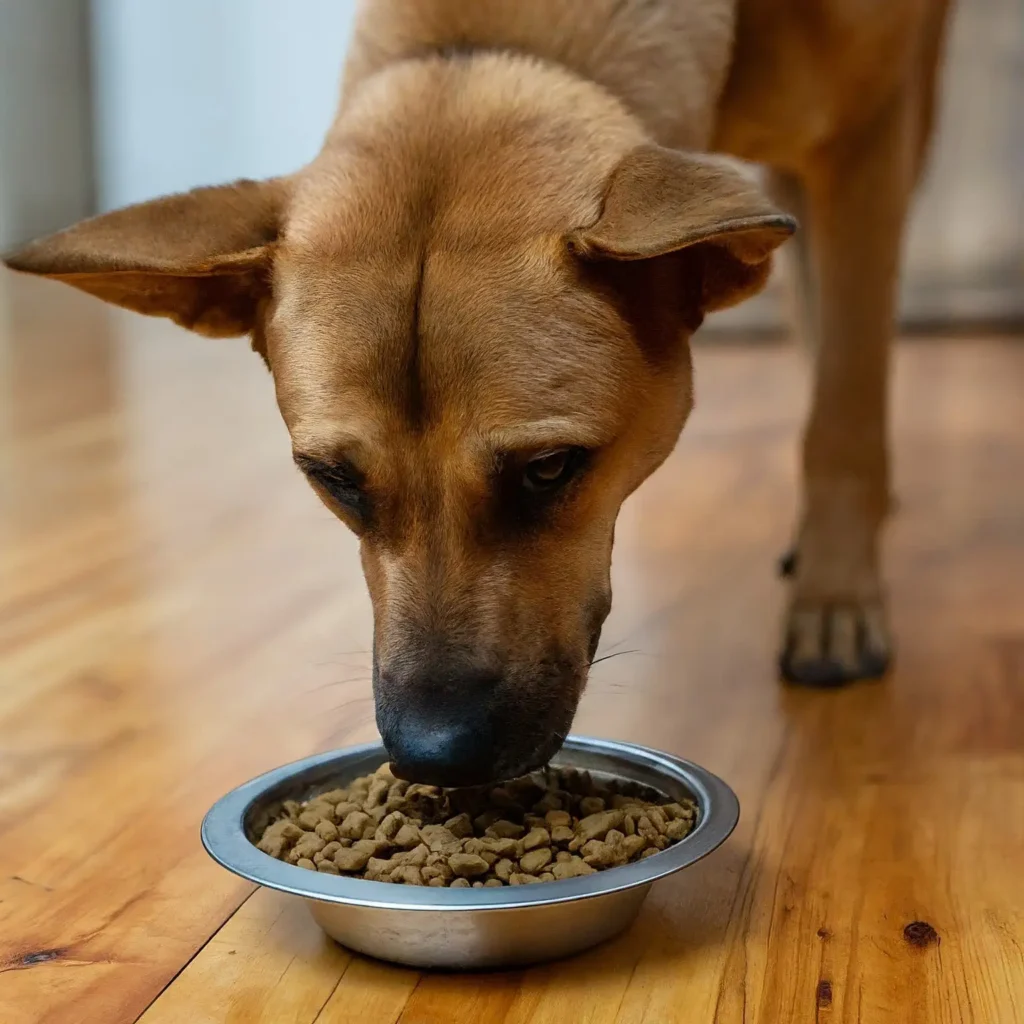
A loss of appetite in dogs can be a worrying sign and may be indicative of various health issues, from dental problems and stress to systemic diseases. While it’s not uncommon for dogs to skip a meal occasionally, especially in hot weather or due to minor disruptions in their routine, a prolonged lack of interest in food warrants further investigation.
First, assess any potential changes in their environment or routine that could be causing stress or discomfort. If there are no obvious external factors and your dog is also showing other signs of illness, such as lethargy, vomiting, or diarrhea, it’s time to consult your vet. They can help determine the cause of the appetite loss and suggest appropriate treatments, which might include dietary adjustments, medications, or more specific interventions.
Ensuring your dog’s food is fresh, palatable, and appropriate for their age, size, and health status is also crucial. Sometimes, a simple change in diet can reignite a dog’s interest in eating. However, never force-feed your dog, as this could cause additional stress and exacerbate the problem.
13. Bloody Stool in Dogs: Home Remedies
Finding blood in your dog’s stool can be a frightening experience, indicating issues ranging from minor to severe, such as gastrointestinal upset, parasites, or more serious conditions like colitis or cancer. For a single, isolated incident with otherwise normal behavior and appetite, you might monitor your dog closely for any further occurrences or symptoms.
At home, you can support your dog’s gastrointestinal health by providing a bland diet (boiled chicken and rice) and ensuring they have plenty of clean water to prevent dehydration. Adding a small amount of pureed pumpkin to their food can also help regulate their digestive system due to its high fiber content. However, these home remedies should only be used for mild cases and not as a substitute for veterinary care.
If bloody stools persist or are accompanied by other symptoms such as vomiting, lethargy, or severe diarrhea, seek veterinary attention immediately. Your vet can conduct the necessary tests to diagnose the underlying cause and recommend the appropriate treatment to ensure your dog’s health and well-being.
14. Why is My Dog Breathing Heavily?
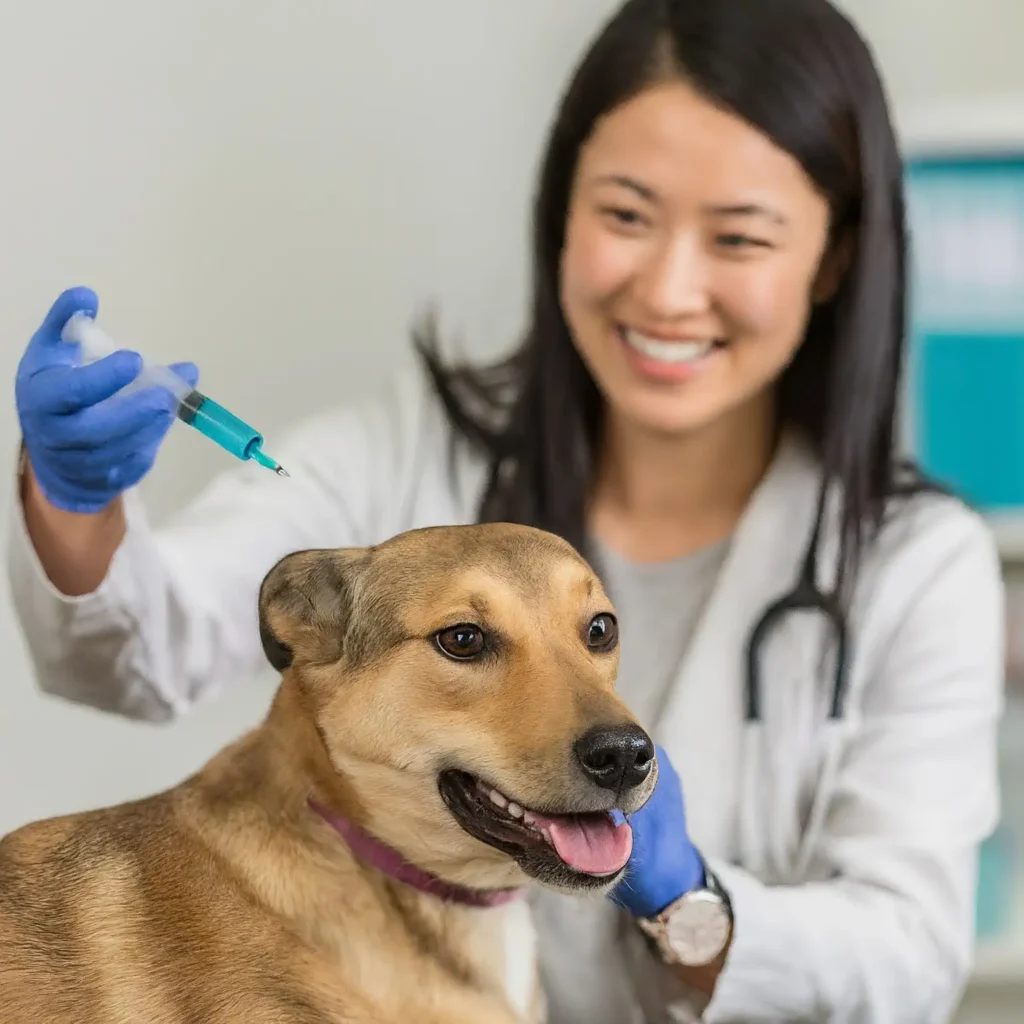
Heavy breathing or panting in dogs can occur for various reasons, including after exercise, during hot weather, or as a response to stress. However, if your dog is breathing heavily without an apparent reason, it could be a sign of more serious issues, such as heatstroke, respiratory problems, heart disease, or pain.
If you notice your dog panting excessively without having engaged in physical activity or being exposed to high temperatures, try to calm and cool them down. Provide fresh water, ensure they’re in a well-ventilated or air-conditioned space, and observe them closely for any other symptoms, such as coughing, lethargy, or a blue-tinged tongue, which could indicate oxygen deprivation.
Immediate veterinary attention is required if heavy breathing persists or if your dog shows signs of distress. Your vet can assess your dog’s condition, perform necessary diagnostics, and initiate treatment to address the underlying cause of the heavy breathing, ensuring your dog’s safety and comfort.
15. Dog Illness Prevention Tips
Preventing illness in your dog involves a combination of regular veterinary care, a balanced diet, adequate exercise, and attention to mental well-being. Routine check-ups and vaccinations are crucial for catching and preventing many common diseases. Keeping your dog on a consistent schedule for flea, tick, and heartworm preventatives can also safeguard them from these parasites and the diseases they can transmit.
Nutrition plays a vital role in your dog’s health. Feeding a high-quality diet suitable for your dog’s age, size, and health needs can support their immune system and overall well-being. Regular physical activity and mental stimulation are equally important, as they help maintain a healthy weight, prevent behavioral issues, and enrich your dog’s life.
Don’t overlook the importance of dental care and grooming, as these can prevent issues that might otherwise go unnoticed until they become serious. Creating a safe environment, free from toxic substances and hazards, can further reduce the risk of accidents and illnesses. By taking these proactive steps, you can help ensure your furry friend leads a long, healthy, and happy life.
16. Dog Illnesses by Season
Just as humans are affected by seasonal changes, dogs can also experience seasonal health challenges. In the warmer months, dogs are more susceptible to heatstroke, dehydration, and parasite infestations like fleas, ticks, and heartworms. Keeping your dog cool, hydrated, and on preventative medications during this time is key to their health.
During colder months, dogs can face risks from hypothermia and frostbite, particularly those with short coats or lower body fat. Ensuring your dog has a warm, cozy place to sleep and limiting their exposure to extreme cold can prevent these issues. The change in seasons can also bring about allergies, with spring and fall pollen causing skin irritations and respiratory issues in sensitive dogs.
Being aware of the specific health risks associated with each season and taking preventative measures can help keep your dog healthy throughout the year. Regular vet visits can also provide seasonal tips and updates on any emerging health trends in your area, allowing you to adjust your care routine as needed.
17. Can I Give My Dog Human Meds?
It’s crucial to understand that many medications safe for humans can be harmful or even deadly to dogs. While it might be tempting to treat your dog’s minor ailments with over-the-counter human medications, this can lead to serious complications. Dogs metabolize medications differently than humans, and what is a safe dose for a person can be toxic to a dog.
If you believe your dog needs medication, always consult with your veterinarian first. They can prescribe dog-safe medications and provide the correct dosage based on your dog’s specific needs and health status. For minor issues like cuts or abrasions, there are pet-safe alternatives that your vet can recommend.
In case of accidental ingestion of human medication by your dog, contact your vet or an emergency animal poison control service immediately. Providing the right care based on professional veterinary advice is the best way to ensure your dog’s health and safety.
18. When is Dog Vomiting an Emergency?
While occasional vomiting may not be unusual for dogs, certain situations require immediate veterinary attention. If your dog’s vomiting is accompanied by symptoms such as blood in the vomit, severe lethargy, unrelenting diarrhea, signs of pain, bloating, or attempts to vomit with nothing coming up, it’s time to act fast.
Repeated vomiting can quickly lead to dehydration and electrolyte imbalances, which can be dangerous, especially for puppies, senior dogs, or those with underlying health conditions. If your dog has ingested a toxic substance or a foreign object, prompt veterinary care is essential to address potential poisoning or blockages.
In emergencies, time is of the essence. Contact your vet or an emergency animal hospital immediately if you’re concerned about your dog’s vomiting. They can provide guidance on what to do next and ensure your dog receives the care they need.
19. Natural Remedies for Dog Illnesses
While natural remedies can be helpful for minor ailments, they should be used with caution and under the guidance of a veterinarian. Some natural supplements and herbs can support overall health, such as omega-3 fatty acids for skin and coat health or probiotics for digestive well-being. However, it’s important to remember that “natural” does not always mean “safe.”
Before introducing any new supplement or remedy, discuss it with your vet to ensure it won’t interact with any medications your dog is taking or exacerbate existing health conditions. Also, be wary of using essential oils, many of which can be toxic to dogs, even in diffusers.
For minor cuts and scrapes, diluted antiseptic solutions or honey can be effective for wound care. However, more serious injuries or illnesses always require professional veterinary treatment. Natural remedies can complement conventional treatments but should not replace them, especially in serious cases.
20. Early Symptoms of Parvo in Dogs
Parvovirus is a highly contagious and potentially deadly virus that primarily affects puppies and unvaccinated dogs. Early detection and treatment are crucial for the survival of infected dogs. The initial symptoms of parvo include lethargy, loss of appetite, fever, followed by severe vomiting and bloody, foul-smelling diarrhea.
Because parvo leads to rapid dehydration and can affect the heart muscle in very young puppies, it requires immediate veterinary attention. The virus is highly contagious, so infected dogs should be isolated from other dogs to prevent the spread of the disease.
There’s no cure for parvo, but early, aggressive treatment can increase the chances of survival. This typically includes hospitalization, IV fluids, anti-nausea medications, and antibiotics to prevent secondary infections. The best prevention
against parvo is timely vaccination, so ensure your puppy receives their parvo shots according to the schedule recommended by your vet.
